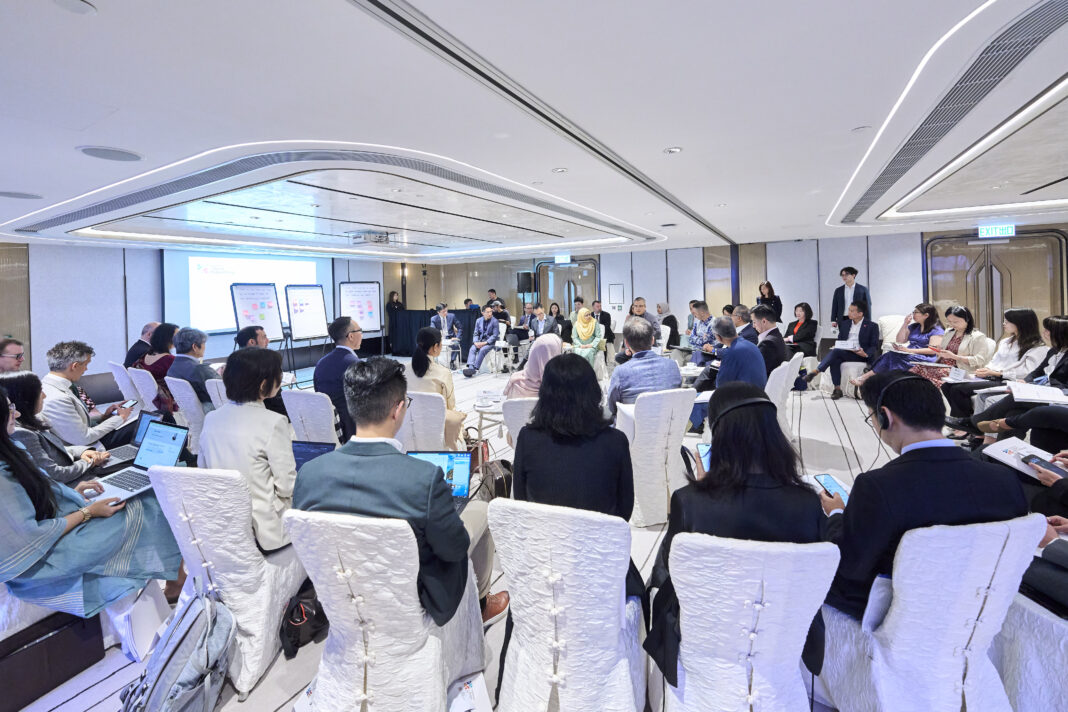New research reveals diverse approaches to cultivating domestic philanthropy
HONG KONG SAR – Media OutReach Newswire – 8 September 2025 – The Commission on Asian Philanthropy – a coalition of 13 of Asia’s leading philanthropic organisations – today announces early insights from its landmark research study on Asian giving.
The study highlights five distinct growth models that are transforming the scale, professionalism and effectiveness of philanthropy across Asia, namely corporate-led, community-led, faith-based, state-led and high-net-worth-individual-led. While the last model has a comparatively limited presence in Asia, the first four account for the majority of philanthropic capital and activity across the region and offer compelling pathways to unlock domestic impact through approaches tailored to local contexts.
Distinctively, philanthropic growth models in Asia capitalise on the region’s values, with society taking on greater collective responsibility. The Commission has found that this diverse and pluralistic approach to cultivating philanthropy extends beyond a focus on high-net-worth individuals and allows jurisdictions in Asia to derive benefits that surpass financial contributions alone.
Key features of the growth models include:
- Corporate-led: companies deploy assets, expertise and infrastructure to advance inclusive development.
- Community-led: citizens engage through volunteering, peer support and grassroots mobilisation.
- Faith-based: values-driven giving sustains long-term action and deep community trust.
- State-led: enables greater co-ordination and scale, leveraging the state’s reach and delivery infrastructure.
To illustrate how these models are reshaping philanthropy in practice, the Commission spotlighted examples from several jurisdictions, each reflecting the kind of expansive investment and strategic ambition that defines a growth model.
- India’s mandatory CSR boosted corporate giving from US$1.20 billion in 2015 to US$4.17 billion in 2024, embedding inclusive growth into boardroom priorities in less than a decade.
- China and Saudi Arabia have digitalised informal giving by the general public, with China channelling close to US$1.55 billion in 2021 and Saudi Arabia raising US$1.33 billion in 2024 through digital fundraising platforms.
- Indonesia’s Zakat system (giving to vulnerable people as mandated by Islamic law) has professionalised faith-based giving, increasing contributions to US$2.55 billion in 2024, with institutional giving tripling since 2015 to US$0.73 billion (28.69% of total).
“Asia’s philanthropic landscape is full of potential, but real transformation depends on strengthening the underlying systems that support the different philanthropic growth models,” says Lester Huang, Chairman of the Institute of Philanthropy – which is a Co-Convenor of the Commission on Asian Philanthropy. “These models offer a path forward – not just to grow giving, but to professionalise philanthropic approaches, improve co-ordination and increase impact.”
These findings mark a major milestone in the Commission’s three-year effort to catalyse “in Asia, for Asia” philanthropy. Rather than prescribing a single model, the research celebrates regional diversity, showcasing how jurisdictions are cultivating systems aligned to their cultural, institutional and socio-economic contexts. The Commission has identified multiple jurisdictional examples of pathways across the corporate-led, community-led and faith-based models to spark dialogue, foster shared learning and encourage regional collaboration to inform the evolution of domestic philanthropic ecosystems.
“Asia is shaping a new paradigm for global philanthropy, one that is rooted in local relevance, innovation and strategic execution,” said Ichiro Kabasawa, Executive Director of The Nippon Foundation. He represents the Asia Philanthropy Congress, which is a co-convenor of the Commission on Asian Philanthropy. “By building on bold growth models, we’re not just increasing giving, we’re raising the standard for what philanthropy can achieve when it is deeply embedded in the communities it aims to serve.”
The Commission consists of the following organisations:
- China Soong Ching Ling Foundation
- Erth Zayed Philanthropies
- The Hong Kong Jockey Club Charities Trust
- Kasikornthai Foundation
- King Khalid Foundation
- Nippon Foundation
- Piramal Foundation
- Tanoto Foundation
- Tata Consultancy Services
- Temasek Foundation
- Tencent Charity Foundation
- Yayasan Dompet Dhuafa Republika
- Yayasan Hasanah (a foundation of Khazanah Nasional Berhad (Malaysia))
Co-convenors:
- Asia Philanthropy Congress
- Institute of Philanthropy
Co-secretariats:
- AVPN
- Voyage
Hashtag: #CommissionOnAsianPhilanthropy #Philanthropy #CSR #CorporateGiving #AVPN
The issuer is solely responsible for the content of this announcement.
Asia Philanthropy Congress
The Asia Philanthropy Congress was launched in 2022 as a venue for inviting the leaders of organizations in the philanthropy sector, especially foundations engaged with addressing social issues in the Asia region, and promoting cooperation and coordination aimed at solving these issues. Philanthropic activities––meaning both charitable work and social contribution––have an advantage in that they allow the swift provision of assistance in areas where public assistance from government agencies, corporate activities, or social investment cannot offer sufficient solutions. The congress gathers the leaders of the Asian philanthropy sector, especially from foundations that play a leading role in such activities, aiming to identify solutions together.
Institute of Philanthropy
The Institute of Philanthropy was established in September 2023 through a seed grant of HK$6.8 billion (US$870 million) from The Hong Kong Jockey Club and its Charities Trust. Established as an independent “think-fund-do” tank for China, Asia and beyond, IoP is dedicated to promoting philanthropic thought leadership and enhancing sector capabilities at local, regional and global levels in collaboration with fellow funders. It seeks to provide an Asia-based platform bringing global stakeholders together to promote the betterment of societies everywhere.



 ລາວ
ລາວ
